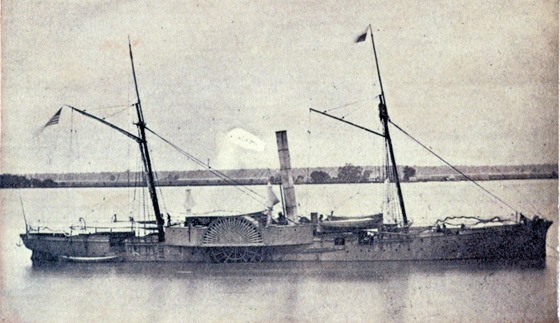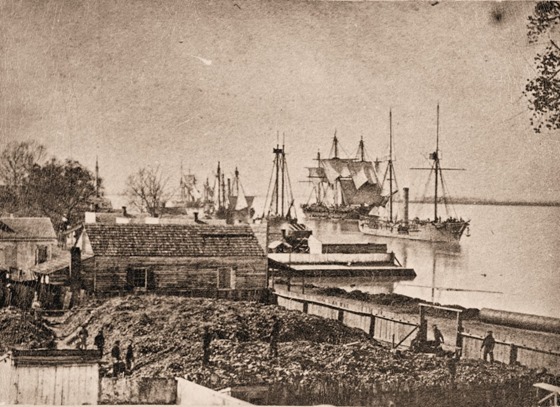March 9.—Yesterday was a very warm day. Just before sunset we had one of the most terrific hail-storms I have ever seen; some of the hail-stones were the size of a hen’s egg. It broke nearly all of our windows on the west side of the house. It only lasted a few minutes. Had it been of much longer duration, I think the house would have fallen, as the rain poured through the windows in torrents, and would have swept all with it. We had a number of very sick men, and did what we could to have them cared for. Mrs. W. went up-stairs to see after the men there, and found Mr. Murray, a nurse, trying to hold in one of the window-sashes; all the glass being broken, the rain and hail poured right down on him. One of the patients, who we thought was dying, was lying so that he had the full benefit of the storm. Mrs. W., in her haste to save him from being drowned on dry land, gave his bunk a pull, and down came bunk, man, and all on the floor. Poor Mrs. W. thought she had killed him, and it gave her such a fright that she ran and left him. Much to the surprise of all, he has taken a turn for the better. None of the men are any the worse.
They get plenty of fresh air now; Dr. Hunter is a great believer in that any way. He says that when men have been living in the field as ours have, without even a tent to cover them at night, when brought into a close room, especially when wounded, they get worse right away. I have seen the truth of this exemplified.
When we first came here, there was a very sick man, whose wife was nursing him; he was in a small room, which the wife would not permit a breath of fresh air to enter, thinking it would kill him, as he had a very bad cough; we all thought he would die. One day Dr. Hunter ordered him to be put into a large ward, where there were about twenty patients; but it was well ventilated. The wife was in a terrible state, and said the moving would kill her husband, and asked me to beg Dr. Hunter to have him moved back. I did so, but he would not grant my request; he said fresh air was the only thing that would save the man, and he did not care to have his murder on his conscience. I found him inexorable, and thought him very hard-hearted. From that time the man commenced to improve, and in a week or two received a furlough, and went home with his wife.
The doctors do not like the wives of the men to come and nurse them; they say they invariably kill them with kindness. There are some ladies who come to take care of their relatives, who seem to understand nursing, and are a great help, not only to their own folks, but to others around them; these the doctors do not object to.










